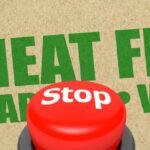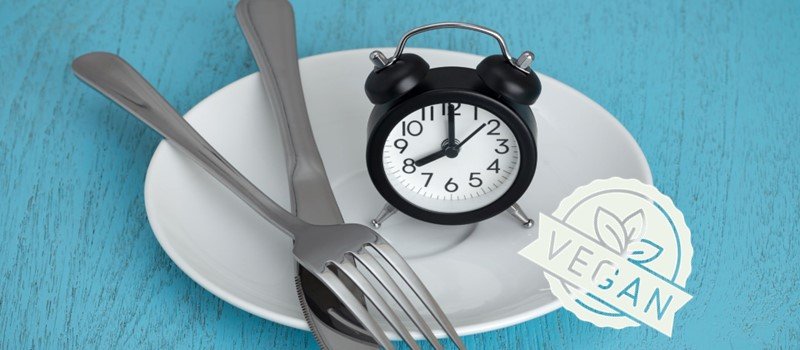Iron is a vital mineral that is required by the human body. It cannot function without it and insufficient or inconsistent levels of iron can cause irregularities in common functions. One key factor to know about iron is that the human body doesn’t produce it naturally. Therefore, it must come from our diet and/or dietary supplements to some degree. In this article with will take you through the importance of iron for vegans, and the best vegan sources of iron to help you on your way.
All cells in the body require iron. This includes red blood cells, and the brain needs it as well. Iron will help to keep your skeletal structure, and your bones healthier (it’s not only calcium that does this). It also helps to move oxygen throughout your body too.
Non-vegans will get the vast majority of their iron from meat.
Iron for vegans is a constant struggle to get enough of it. It is not as present in vegetables and far more plentiful in animal meat. This leads to a potential iron shortfall for vegans.
Why Do We Need Iron Anyway?
Our cells require oxygen to function well. Hemoglobin is created, a type of molecule, that moves oxygen around. Insufficient hemoglobin due to an iron deficiency leads to not enough oxygen getting to all necessary areas of the body.
It also helps to produce myoglobin which the muscles need. Myoglobin comes from iron intake and is a protein produced internally that feeds the muscles. Without it, your muscles will suffer, weaken, and it could cause other health issues.
Iron is also necessary as a power source for the body too. It creates something called ATP, which is fuel to the system. Without enough iron – being anemic – leads to feeling sluggish and low energy without a quick fix for it.
As a mineral, it’s also needed for a strong immune system. Both too much and too little iron each have their negative consequences. It can lead to more frequent bouts of sickness when iron deficient.
Vegan Diet, Greater Risk Of Anemia?
Iron as a mineral breaks down into two types: non-heme and heme.
Heme iron is plentiful in poultry, other animal meat, and fish too. At around 40 percent of the iron present in meat, the bloodstream easily absorbs it and makes use of it.
Non-heme iron is the second type. The other 60 percent of iron found in non-vegan protein sources is non-heme. This isn’t anywhere near as effectively absorbed into the bloodstream.
It can be done, but it’s less successful. Non-heme iron foods include vegetables, nuts, and different types of grains.
Vegetables have iron, but it’s all the non-heme type. This makes it a struggle to get enough iron into the diet. Also, many vegetables have smaller amounts of iron compared to others or animal meat, so it’s necessary to overly focus on iron-rich foods.
Being vegan, there’s a high likelihood of taking in insufficient amounts of iron. That is unless making it an important part of your vegan dietary plan and using supplementation too.
Doing both can help avoid getting anemia because of an iron deficiency.
How Can Vitamin C Help?
One solution to combat the difficulty in absorbing non-heme iron is to ensure you have enough Vitamin C every day.
Why is this? Because it increases the rate of absorption for non-heme iron.
To get more Vitamin C, look to foods rich in it, such as broccoli, tomatoes, beans, and soy as well. So, certain vegan protein sources can help here, not just vegetables or legumes alone.
Of course, there are also Vitamin C tablets, and it is included in pretty much all multi-vitamin supplements too. There are also high-dose Vitamin C supplement options.
Just be careful there because too much of anything is never a good thing! As the old saying goes, moderation is key.
Recently Become Vegan and think you May be Anemic?
For newer vegans, it might be difficult to figure out if you’re already anemic.
If you didn’t know that a typical vegan diet may be overly light on sources of iron, then the switch could have quickly resulted in becoming iron deficient.
Do you believe that you’re possibly anemic already? Here are some indicators to keep a watch for:
- Low energy levels
- Palpitations of the heart
- Breathing lighter
- Paler skin
There are also other indicators of anemia that occur less frequently:
- Eating foods that “don’t taste quite right”
- Bouncing legs (that won’t stop moving)
- A buzzing sound reoccurring
- Occasional headaches
- An itchy sensation on the skin
With anemia, the symptoms are not uniform. Depending on the sufferer, some occur while others do not. They also happen at different intervals and may overlap.
Additionally, they also will be stronger for some symptoms and less so for others.
Get medical advice if you have any worries about your long-term health. Being anemic due to an iron deficiency is not a minor issue.
Sources Of Iron For A Vegan Diet
Green vegetables, the leafier the better, are good sources to find iron. Also, the modest lentil and beans are useful to up your iron intake too.
Many vegans struggle to get half of what they require for iron.
List Of Vegan Sources Of Iron
Below is a list of some vegan friendly sources of iron that you may want to incorporate into your vegan diet.
- Nuts
- Green veggies: Broccoli, watercress, spring greens, kale, or cabbage
- Pulses aka peas, lentils, or beans that are dried
- Dried Fruit: Cranberries, apricots, or raisins
- Fortified breakfast cereal (iron is included as an extra)
- Wholewheat vegan bread
Do I Need To Take An Iron Supplement?
It’s important to know how much iron per day for a vegan. That counts whether you’re a new vegan or have been practicing it for years.
Women need more milligrams of iron daily compared to men. This is because of the menstrual cycle which sees women lose considerable blood and iron in the process.
After their menstruation cycles cease, usually in their 50s, then the iron requirements match that of men. Around 18 mg is required daily after their teens and 15 mg before. From their early 50s, this declines to 8 mg.
Men require fewer milligrams of iron daily, but boys need a higher dosage than they do when adults. Men require 8 mg daily of iron, and 11 mg up to the age of 18.
The adult requirement of 8 mg remains constant throughout their lives.
Women consume fewer calories and yet require more iron. Therefore, as a vegan, a woman must dig into the foods that are rich in iron and develop an eating plan around that.
Supplementation using vegan iron supplements also works to fill in any gaps.
A vegan liquid iron supplement is also fine if taking tablets is a daily struggle. Men will often still require an iron supplement if they’re vegan.
Also, for a person who has a female menstruation cycle even if they identify as male, they’ll need a higher amount of iron to compensate for what’s being lost.
Final Thoughts: What Is The Importance Of Iron For Vegans?
Vegan diets are immediately lower in iron than non-vegan eaters. As a vegan, you will have to be conscious of your intake of iron, and plan plenty of vegan-friendly iron-rich foods into your diet. There are a wide variety of foods rich in iron that can be consumed on a vegan diet.


![Vegan Farmers Markets [Where To Find Them and What to Buy]](https://awesomeveganblog.com/wp-content/uploads/2022/06/Vegan-Farmers-Markets-Where-To-Find-Them-and-What-to-Buy.jpg)

